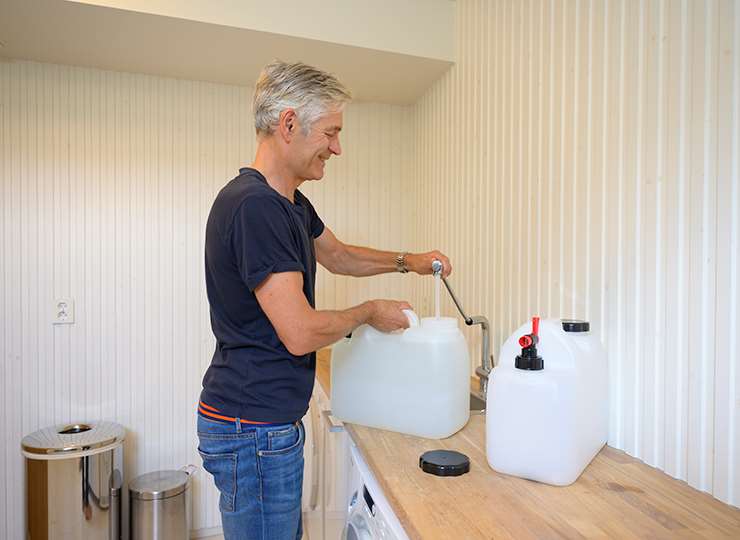
Keeping warm in a power cut
Many homes have electricity as the most important or only energy source for heating. In this article you will find specific tips that will help make you better prepared in the event of a power failure.
Advice regarding heating and lighting
- Keep warm clothing and blankets, duvets or sleeping bags in your home.
- Keep a store of candles or tea lights, matches or lighters.
- To see in the dark, it is a good idea to have torches or head lights. Remember to keep extra batteries!
Alternative heating
- Make sure that the fireplace and chimney are approved and in good condition, and that you have enough firewood.
- Gas or paraffin heaters intended for use indoors are an alternative in the event of a power failure.
- Emergency power sources, such as a generator or battery with a 230 V socket can be alternatives. In such case, you must make yourself thoroughly familiar with regulations and guidelines for safe use. Read more about fuel storage and how to avoid carbon monoxide poisoning.
If a power failure occurs in the winter it can quickly become cold and dark indoors. In the event of a major power failure, it can take some time before power returns. Therefore you should be prepared to manage without power for one week.
During a power failure you can reduce heat loss in your home by closing doors or hanging up blankets between rooms. You can also hang blankets or curtains in front of the windows.
Remember fire safety
Remember that the use of open flames greatly increases the risk of fire. Check that you have approved fire extinguishers and functioning smoke alarms.
What you need to remember when storing gas and flammable liquids in your home.
Temporary accommodation
- Speak to neighbours and family or friends and make arrangements to stay with them, in the event of an extended power failure.
- Do you have alternative heating other than electric heating, and know of someone who does not? Consider offering them to stay with you in the event of a crisis.

